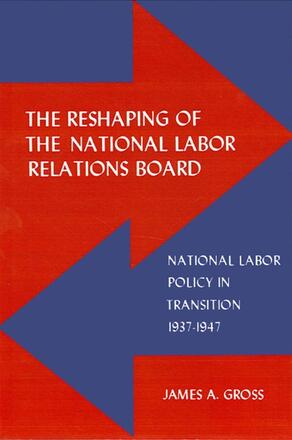
The Reshaping of the National Labor Relations Board
National Labor Policy in Transition 1937-1947
Alternative formats available from:
Description
In this volume, covering the years 1937–1947, James A. Gross describes and analyzes the NLRB's vigorous and uncompromising enforcement of the Wagner Act and the intense political pressure to which the Board was subjected as a consequence. He identifies and examines the forces that succeeded in pressuring the NLRB out of its essential role in the making of U. S. labor policy.
This is the story of the transformation of the NLRB from an expert administrative agency that played a major role in the making of labor policy, into an insecure, politically sensitive agency preoccupied with its own survival and reduced to deciding marginal issues.
James A. Gross is Professor of Industrial and Labor Relations at Cornell University.